 |
Louis L'Amour Movies
and the Business of Film
|
Beau L'Amour:
First off -- we, meaning the L’Amour family, do not “make” movies, we sell the rights to companies that are in the business of making movies and have the money to make movies and have the ability to distribute a movie once it’s made (that’s the hardest part).
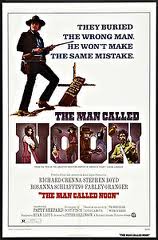
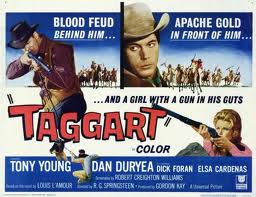
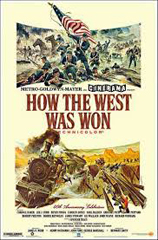
Sometimes I, as a separate entity, will work as a producer on a movie … if I get the chance. That has very little connection with what I do for the L’Amour Estate. It means I get hired and work for the movie company as their employee. There are many different types of producer, some are writers, some are accountants, some know every trick of the trade and have a phone book full of highly qualified personnel. I write and work with writers (if they will listen!) and know a few of those tricks … one thing for sure, I am not an accountant. Not all the films I have worked on had anything to do with my father and I've worked on quite a few really rotten films. The day to day experience of working on a rotten film is much like working on a decent one ... but in retrospect you often learn more.
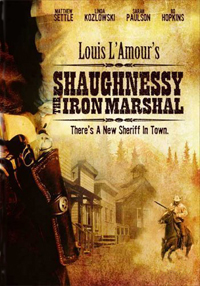 It is sort of a mistake, however, to think that a movie producer is “the boss” or the top dog on a production … although there are quite a few producers who keep spreading that particular myth!
It is sort of a mistake, however, to think that a movie producer is “the boss” or the top dog on a production … although there are quite a few producers who keep spreading that particular myth!
“The Boss” is usually the Creative Executive at the studio or network. They are the top of the food chain and the person responsible for nearly everything. Producers, Directors, Stars, all tremble when they mumble. Sometimes I think that the producers are only there so that studio executives can blame them when something goes wrong … a fuse in the responsibility circuit.
So, the fact that I have occasionally worked as a producer does not mean that I can make a film happen if I want it too. That takes vast amounts of cash and access to distribution, neither of those things come easily or for free. It takes corporate relationships that I, for the most part, do not have. Certainly, if it was up to us we’d have made all your favorite films long ago and we’d be sitting in Tahiti counting the money … or wherever it is that you sit and count money when everything is really copacetic!
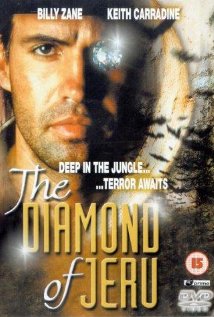 Louis L’Amour books and short stories are always available to film makers. But I am very careful about who I spend my time dealing with. It is a very strange business and there are a lot of very strange people in it. However odd you may think the film business is, trust me … it’s odder!
Louis L’Amour books and short stories are always available to film makers. But I am very careful about who I spend my time dealing with. It is a very strange business and there are a lot of very strange people in it. However odd you may think the film business is, trust me … it’s odder!
There are a lot of people trying to make something happen in Hollywood. A very limited number of them can actually get a film made. Having worked in the motion picture business, I try to limit my dealings to people who have a reputation for promptly generating deals and getting productions started. I also try to only work with people who I respect and who I think will be good custodians of a particular story. My respect for a particular film maker or their being good custodians are not recipes for success whatsoever … it’s just a good jumping off point.
For most of the last 25 years one L’Amour film or another has been in discussion. Only a couple of them have actually been made in that time. It is absolutely useless to talk about what title might be made … the chances are insignificant. Plans fall apart constantly. The only time you can actually know a film is being made is when it starts shooting. So basically, I don’t talk about what might happen until a project is in production. At any other point in the process it’s a complete waste of time.
I never let potential film makers, without reputable backing, do a screenplay of any title, that just causes legal problems. Studios are very fussy about writers, they only want who they want, and who they want changes with the phases of the moon. If we can get a studio or network to pay for the rights and to have a script written, that’s different … it shows that the people who might make the movie truly mean business.
Every film that is made is, for better or for worse, the sum of it’s component parts and all of those parts are moving at different speeds. If the right people, like actors, writers, directors, and editors, are available and are known to the producers and are affordable then you might get a good film … maybe. But if the mixture has one or two wrong elements (and you never know until too late) it’s a disaster and there is little you can do about it. Moreover, you can’t “wait” until the right time. Generally, you get one shot, take it or leave it … forever.
So some films may end up blessed and some cursed from the outset. The top film makers are better at stacking the deck in their favor but it doesn’t always work out for them either.
Louis spent a lot of time around Hollywood, occasionally working directly on movies. He was pretty familiar with the process and he didn’t expect any guarantees from it. He could be happy with a fluke success, like Hondo, or accepting of a Dead-at-Birth junker like Cancel My Reservation.
Movies and books are very different mediums and Dad knew as well as anyone the limitations of each. Reading allows the audience’s imagination to create the perfect locations, costumes and cast for any story. Film is pretty damn literal. You hit some sort of happy medium where a wide variety of people like exactly what you’ve done or you fail. On top of that you can only do the things you can afford to do and, regardless of what you have heard of film budgets, everything besides the stars salary is highly regulated. All a novelist has to do is afford to live while he writes. Shooting a medium sized film costs $10,000 per hour, so everything moves as fast as it can. Film making is a world of compromise and making do and, as I noted above, the film makers are not as much in control of the process as we often think … fate is.
Having worked on a number of movie projects, Louis realized that writers and directors must be allowed free reign to do what they needed to with his stories … not that he had a choice, when a writer sells the movie rights to a book he has no more control over it. In fact most of the time a novelist or even a screenwriter is not even welcome on the set.
He also knew that an adaptation, good or bad, does not replace the original … it can not “harm” it. An adaptation is an alternative version, like a “cover” of a song, it should be enjoyable not for how similar it is (why would you need something that was the same if you already have the original?) but how good it is on its own. A good movie adaptation is far from a copy of the original and certainly not a word for word or idea by idea transcription. If good movies were that easy, they would all be good!
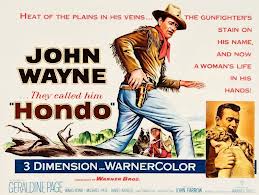 The movie Hondo was very much an elaboration and an evolution of Louis’s short story The Gift of Cochise and, although he needed the paycheck, Louis agreed to “novelize” James Grant’s screenplay. He respected it, and it’s differences, enough to put his name on it. There were plenty of times a film company asked him to do something he didn’t agree with and he just returned the money, whether we desperately needed it or not!
The movie Hondo was very much an elaboration and an evolution of Louis’s short story The Gift of Cochise and, although he needed the paycheck, Louis agreed to “novelize” James Grant’s screenplay. He respected it, and it’s differences, enough to put his name on it. There were plenty of times a film company asked him to do something he didn’t agree with and he just returned the money, whether we desperately needed it or not!
A feature film, or even a TV series, can convey much less story information than a novel. To adapt a novel or short story, you have to pick and choose what you will center your movie around … and there are always painful choices to be made. Once you get the subject matter slimmed down, the screenwriter has to focus on making the material produce good performances for the actors … a skill utterly different from writing dialog in a novel. Novelists rarely bother to build the tension and characterization that a scene needs in order to work for an actor. And if a novelist wrote out every single line of dialog like a screenwriter, he would be considered a complete bore. Few readers would put up with all that talking... but in a movie the scene won’t work without it.
Dad was not much interested in being screenwriter … writing screenplays means taking a lot of soul killing abuse from producers and creative executives and Louis wasn’t the sort to put up with that. I’ve put up with it and I think my dad, peaceful as he was, might have punched someone. He was also nervous having his work picked apart because he didn’t really know how he did it, writing was instinctual with him and too much planning tended to ruin it.
It is also very common for everyone on a film (everyone who carries enough weight) to start changing the script. Actors, the director (he has the right to do so, however), producers, and most often the creative executives at the studio or network. I have worked with star actors who would change the script every night, not only rewriting their lines (which is occasionally tolerable) but rewriting other actors lines (which, in my opinion, is disgusting, foolish and rude). I have received 20 emails a day from the studio creative executives changing words throughout the script, often citing dictionary definitions and diagramming sentences … as if characters spoke like English teachers. And I have sat in meetings where the best scenes in a film (the most visual scenes!) were torn out by a director trying to show that he was just as willing to make changes in a script as the network executives … all to prove that they could trust him.
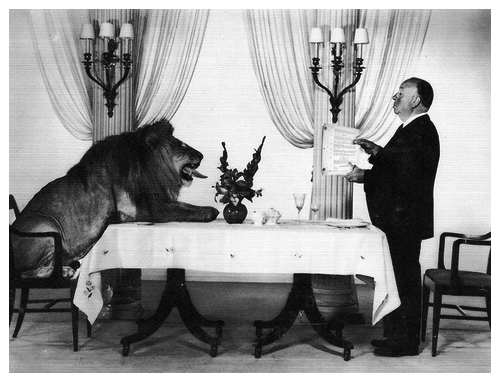
Dealing with the script on a film can be a nightmare whether you are the writer or a producer trying to protect the writing. In many cases changes are made by people who aren’t even familiar enough with the script to really understand what they are changing. It just makes you nuts to watch your carefully crafted screenplay turned to mush by all this meddling. It also makes you nuts to realize that your name is on it and people will think that is what you intended. In many cases if you see a film and it feels like the script is a patchwork, chances are that mess occurred after the writer left and other people decided to “fix” the script!
Wisely, Dad stayed out of that environment. You can see why. His work in Hollywood was mostly laying out a story concept, quick and dirty, getting a paycheck and getting out. Two examples of this are Stranger on Horseback and East of Sumatra though there were dozens of others that did not go into production.
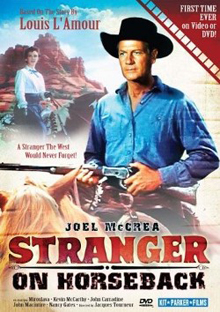
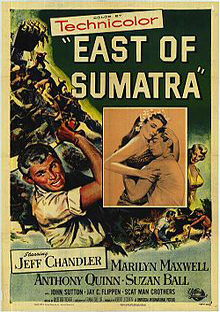
The thing he never wanted was for a writer or director to feel any pressure from him to make a movie “just like his book.” It can’t be done and it’s a waste of time trying. Usually, if people like a movie, and they enjoyed the book, they will feel the film was “like the book” even if it wasn’t.
I’m sure there will be more films in our future. They will be different, however, than films were in the past. Features are bigger than ever or they are small and sort of intimate. The Movie Of The Week is gone, except in places like Lifetime. Series rules the television landscape and Mini Series may or may not be back, at this moment, the jury is still out. The old stars are … old. And stars don’t guarantee success any longer, not the way they used to. Whatever comes in the future it will be different. I’m looking forward to it.